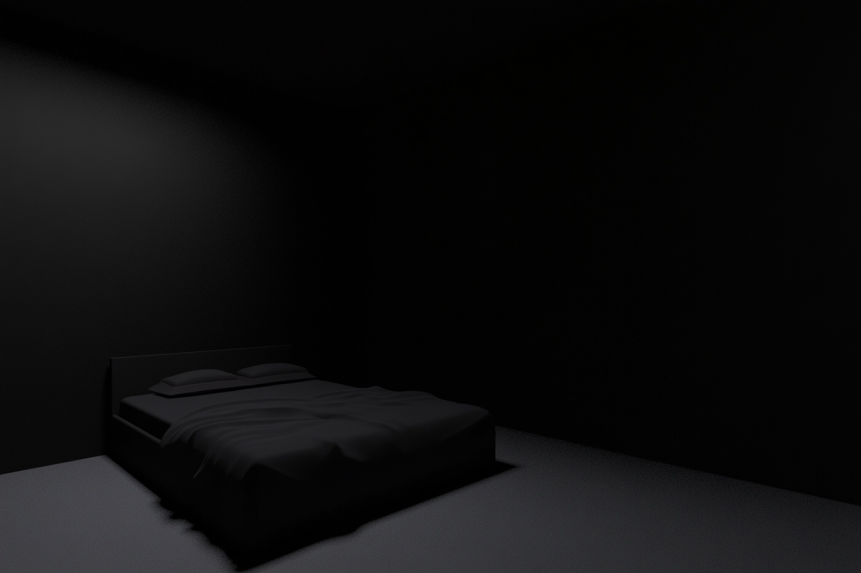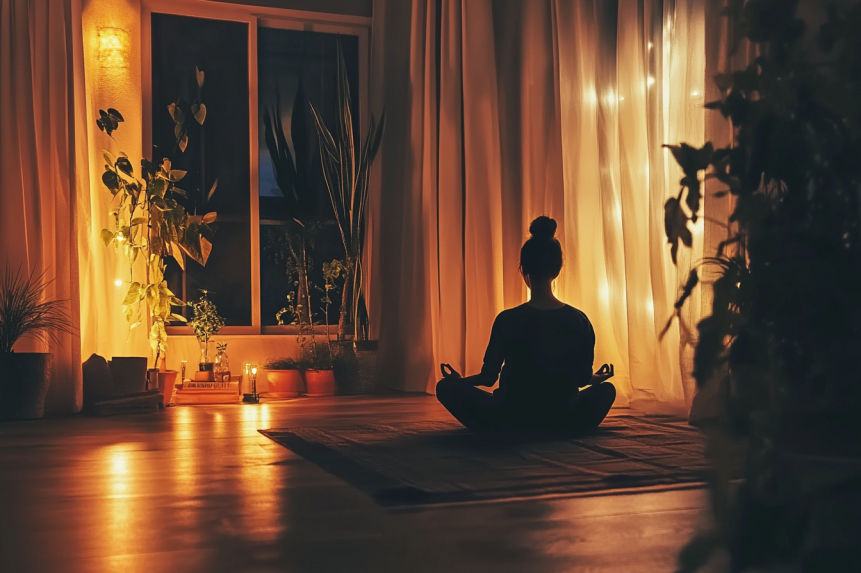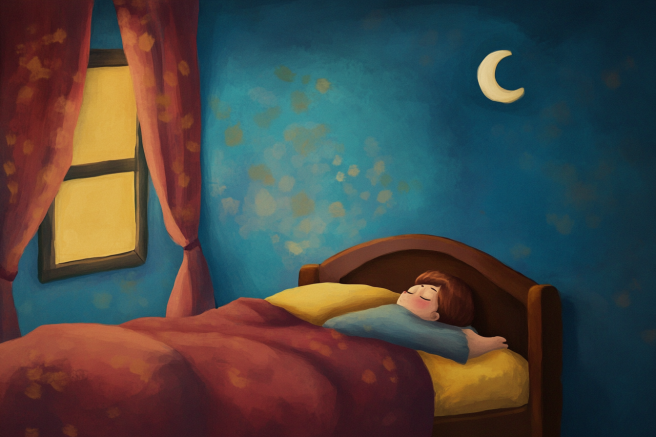Good sleep is essential for overall health, yet many of us struggle to get the rest we need. Whether it’s stress, distractions, or habits that prevent us from falling into a deep, restful sleep, improving our nighttime routine can have a significant impact on how well we rest. In this article, we’ll explore how to improve sleep quality with six effective tips to help you sleep better and wake up feeling refreshed.
.
Avoid Eating Large Meals Before Bedtime
What you eat and when you eat it can significantly impact your sleep quality. Consuming a large meal too close to bedtime can lead to discomfort such as indigestion or acid reflux, as well as an increase in blood sugar levels, all of which can make it difficult to fall asleep or enjoy restorative rest. Heavy meals may also cause your body to focus on digestion rather than relaxation, disrupting your sleep cycle. If you find yourself hungry before bed, it’s better to opt for a light, easy-to-digest snack, such as a small handful of nuts, a piece of fruit, or yogurt. These foods are less likely to interfere with sleep and can provide a gentle energy boost without overloading your digestive system. As a general guideline, try to avoid eating large meals for at least 2-3 hours before going to bed to allow your body time to properly digest and prepare for a restful night’s sleep.
Sleep in a Completely Dark Environment

Your sleep environment plays a crucial role in the quality of your rest. One of the most significant factors affecting your ability to fall asleep and stay asleep is light exposure. Even small amounts of light, such as the glow from street lamps outside your window or the light emitted by digital devices like phones, tablets, or clocks, can interfere with your body’s circadian rhythm. This internal clock regulates your sleep-wake cycle, and any disruption can make it harder to fall asleep, reduce the depth of your sleep, and affect the restorative benefits of your rest. To promote the best sleep, it’s essential to create a completely dark environment in your bedroom. You can achieve this by using blackout curtains or shades to block out external light, or by wearing an eye mask to cover your eyes completely. Reducing light exposure, especially blue light from screens, is one of the simplest and most effective ways to improve sleep quality. By creating a dark, calming environment, you signal to your brain that it’s time to rest, which can help you fall asleep faster and enjoy deeper, more restorative sleep.
Wear Blue Light Blocking Glasses 2-3 Hours Before Sleep

We’re constantly exposed to blue light from our phones, computers, tablets, and TVs. While blue light can help us stay alert during the day, it can interfere with our ability to fall asleep if we’re exposed to it before bed. Blue light suppresses melatonin, the hormone responsible for regulating our sleep-wake cycle. When melatonin levels drop, it becomes harder to feel sleepy and fall into restful sleep. To protect your sleep cycle, consider wearing blue light-blocking glasses for at least 2-3 hours before bedtime. These glasses filter out the disruptive blue light, allowing your body to produce melatonin naturally and helping you unwind. By reducing blue light exposure, you’re giving your body the best chance to prepare for a good night’s sleep.
Keep Your Bedroom Cool
The temperature of your bedroom can also affect your ability to fall asleep. Research shows that a cooler room, typically between 60–67°F (15–20°C), is ideal for sleep. A cooler environment helps lower your body temperature, which signals to your brain that it’s time to rest. If your room is too warm, it can make you feel uncomfortable, disrupt your sleep cycle, and prevent you from reaching deeper stages of sleep. To create the best sleep environment, adjust the temperature to a comfortable level, use lighter bedding, or consider using a fan to cool the room. Keeping your bedroom cool is a simple but effective way to improve sleep quality and ensure a more restful night.
Practice Meditation to Calm Your Mind

Stress and anxiety are common culprits that keep our minds racing when it’s time to fall asleep. To combat this, consider incorporating meditation into your bedtime routine. Meditation is a great way to calm your mind and reduce stress before sleep. Even just 10–15 minutes of mindfulness or breathing exercises can help lower your heart rate, relax your muscles, and prepare your body for rest. Taking time to unwind through meditation can help signal to your brain that it’s time to sleep, promoting a smoother transition into rest and improving your overall sleep quality.
Avoid Drinking Too Much Before Bed
Drinking too many liquids before bed can lead to frequent trips to the bathroom during the night, which disrupts your sleep. While staying hydrated is important, it’s best to limit your intake of beverages—especially caffeine or alcohol—in the hours leading up to bedtime. A good rule of thumb is to stop drinking liquids at least one hour before bed to avoid waking up in the middle of the night. This simple change can make a big difference in your sleep quality, helping you stay asleep longer without interruptions.
Conclusion
Improving your sleep doesn’t require drastic changes; small, consistent adjustments to your nighttime routine can lead to significant improvements. By avoiding heavy meals, controlling your sleep environment, limiting screen exposure, and practicing relaxation techniques, you can enjoy more restful and rejuvenating sleep each night. These simple tips can help you understand how to improve sleep quality naturally. Sleep well, and wake up ready to take on the day!



